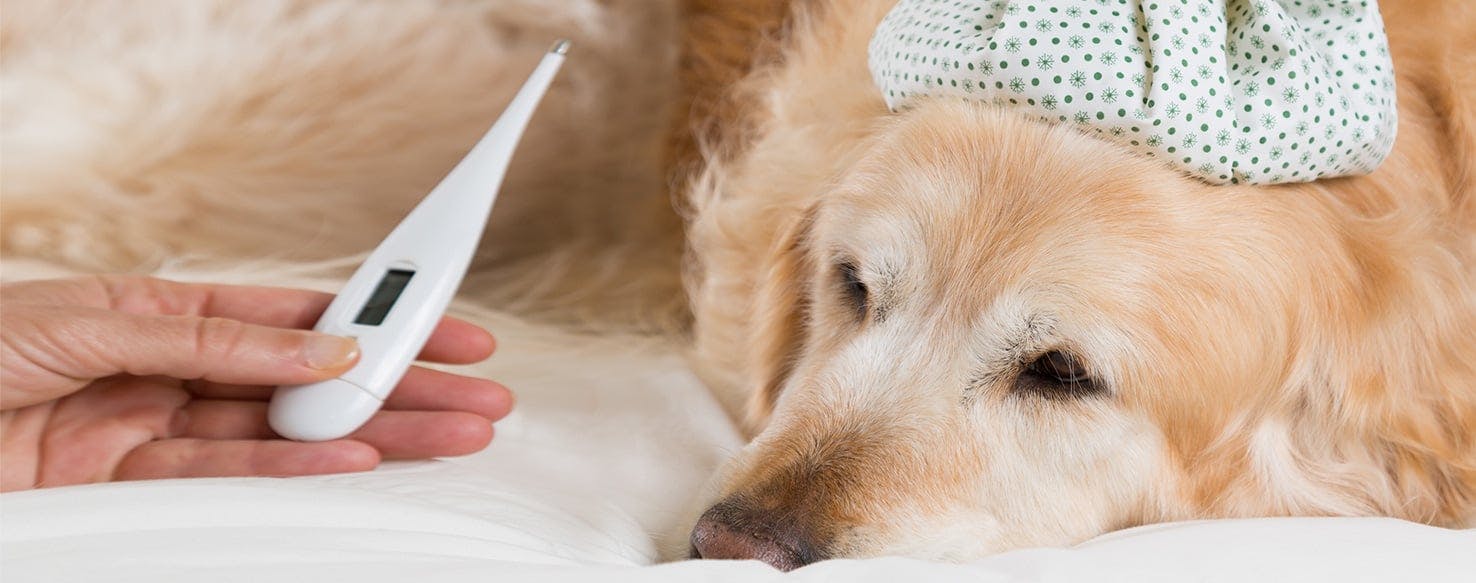Cold...or man flu?
The common cold is a fascinating thing. Indeed, here are some of our favorite facts linked to the common cold:
-
Children get on average 12 colds a year
-
Adults suffer an average of 7 colds a year
-
It's thought there are over 200 strains of virus responsible for the common cold
-
Going out in the cold doesn't give you a cold (no matter what your mom said!)
In short, the common cold is a fact of life. And being viral, there is no cure, it's just a matter of muddling along as best you can. But if you have a bad cold, could you be putting your dog at risk of infection?
Can Dogs Get a Common Cold from Humans?
NO!
This is a little confusing because dogs can and do get colds, but the bugs causing the symptoms are different from the human ones. To all appearances, your dog may have streaming eyes, runny nose, and sneezing, but the fact remains their cold is different from your cold.
Does My Dog Have a Common Cold?
Be alert for the following signs which could indicate your dog has a cold:
The technical term for a cold is an upper respiratory tract infection. There are lots of different bacteria and viruses that cause infection in dogs, including:
If your dog shows signs of illness, especially if they are off their food, then it's important to see your vet. They will reach a diagnosis by taking a history and examining the dog. Sometimes it may also be necessary to take a swab to identify a particularly troublesome bug. For more detail on each condition, click on the links above.
How Do I Treat My Dog's Common Cold?
In the same way, a cold makes you feel lousy, so it will upset your dog's chi. A little TLC (tender loving care) will go a long way to nursing your hound back to health.
Be sure to let them rest, and put water close to their bed. Keep their nose and eyes wiped clean, and try and tempt them to eat with especially tasty foods. It can also help to warm the food up, so it gives off more odor, which often tempts a sick dog to eat.
If the vet suspects bacterial involvement (rather than viral) they may prescribe a course of antibiotics, and likewise, if the dog is feverish, there are drugs to help make them comfortable.
Most dogs get better in 7 to 10 days.
How is the Common Cold Similar in Dogs and People?
You could be forgiven for mistaking a human cold and a dog cold because the symptoms are largely the same. From sneezing to coughing, a sore throat to runny nose, these look identical. But be aware they are caused by species-specific bugs that love to make life a misery.
How is the Common Cold Different in Dogs and People?
The difference is in the detail. In other words: the bugs causing the cold. These are largely species-specific, and don't pass person-to-dog or dog-to-person. (The one exception is bordetella, which can hop across the species barrier, but in healthy people, it rarely causes a problem).
Human colds are usually the result of a strain of rhinovirus or coronavirus.
While dog colds can be due to a cocktail of bacteria including E.coli, Pasteurella, Pseudomonas, Streptococcus, and Mycoplasma, there are also several viral diseases with upper respiratory tract signs, such as canine adenovirus, distemper virus, canine influenza virus, canine reovirus and canine parainfluenza virus to name just a few.
Case Study
A pet-owner is acting nursemaid to two sick children, both of whom have head colds. When the dog starts to sneeze and develops a runny nose, she wonders if the children could have passed their bug onto the dog.
The dog's appetite is poor so the pet parent decides to get him checked by the vet. Happily, this is nothing other than a mild upper respiratory tract infection which is rife at the local doggy daycare facility. The vet advises her to keep the dog's nostrils free of discharge, warm the dog's food, and to get back in touch if he takes a turn for the worse.
Neither the children or dog require anything other than TLC and all three go on to make uneventful recoveries.


